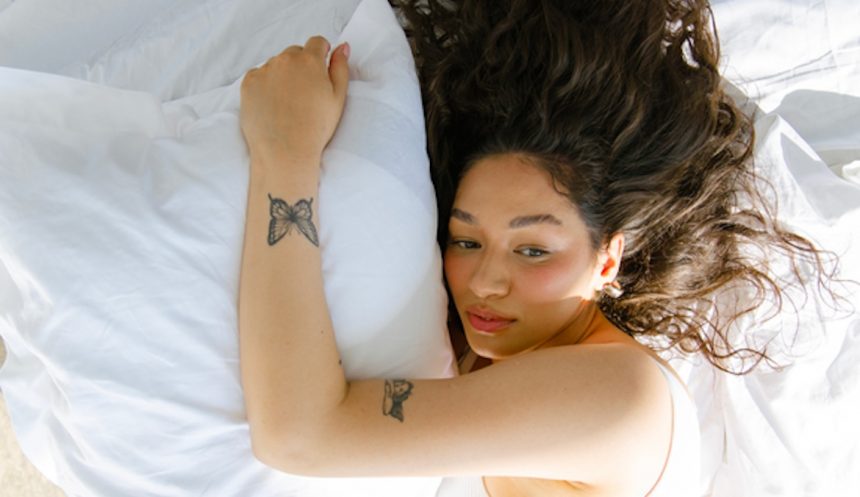“`html
How to Protect Your Hair While Sleeping
Imagine this: You’ve focused on developing a haircare routine that yields your ideal results. You choose products formulated specifically for your hair type. You don’t neglect your scalp and treat it like the skin on your face. You have all the protective steps in place: heat protectant, leave-in mists, and adjustable temperature hot tools. Still, split ends, breakage, and even shedding can’t leave you alone. So what gives? Odd as it sounds, your beauty sleep routine could use some adjusting. According to Lindsey Marie Zubritsky, MD, FAAD, a board-certified dermatologist based in Pittsburg, PA, your bedtime hair habits can impact your hair (and scalp) without you even realizing it. Ahead, we dive into the small tweaks (and things to avoid) to keep your hair and scalp healthy while you rest.
Things to Avoid to Keep Your Hair Healthy While You Sleep
-
Sleeping with Wet Hair
As lovely as a hot shower and a good shampoo is to end your day, jumping straight out of the bath and into bed with a wet head could be damaging to your hair. “When hair is wet, it’s more vulnerable to breakage and split ends,” Dr. Zubritsky says. According to a study in the International Journal of Trichology, water weakens your hair protein bonds, which makes it easier for hair to bend and snap. The researchers noted that hard water (which has higher amounts of dissolved salts of calcium carbonate and magnesium sulfate) is particularly harsh on hair. Add on all the tugging from tossing and turning all night, and you have a recipe for potentially waking up with damage, Dr. Zubritsky says. “Another risk with sleeping on wet hair is the chronic exposure to moisture, which can flare conditions like seborrheic dermatitis [a scaly rash that develops on oil-prone areas of the body like the scalp] or harbor an environment that allows bacteria and fungus to grow,” Dr. Zubritsky says.
-
Leaving Your Hair Loose
Taking your hair out of a tight ponytail is up there on the list of most relaxing feelings at the end of a long day: It feels great, but sleeping with your hair completely loose—whether long or short—can cause wear and tear. When you toss and turn, your hair gets tangled and rubs against your pillow. “The constant friction, pulling, and tugging on long hair during the night can lead to breakage and split ends,” Dr. Zubrtisky says. This is why you may have noticed more hair on your pillow after sleeping with wet hair all night. You might also wake up with unwanted frizz in the morning thanks to all the friction, Dr. Zubritsky adds.
-
Keeping Your Hair in a Tight Ponytail or Bun All Night
Going to bed with loose hair can cause damage to your hair, but pulling it into a tight style for sleeping isn’t recommended either. “Consistent use of tight hairstyles, including tight ponytails and buns, can lead to traction alopecia,” Dr. Zubritsky says. “This occurs when there is constant tension on the hair follicle.” The problem is that this persistent or prolonged pulling on your strands can cause them to break or fall out. Over time, this can damage the follicle and cause hair loss, sometimes even permanently, Dr. Zubritsky says. Any tight hairstyles—think super tight buns, braids, hair extensions, or weaves—can cause traction alopecia, according to the American Academy of Dermatology Association (AAD).
-
Using the Wrong Kind of Pillowcase
For pajamas and undies, cotton is a winner: it’s lightweight, lets your skin breathe, and absorbs moisture. But when it comes to your bedding (and how it affects your hair), there are better materials to consider sleeping with. Cotton can be rough on your hair. When your hair rubs against it, the fabric creates friction, which can cause potential hair breakage, according to a March 2021 paper in the International Journal of Women’s Dermatology. Alternatively, Dr. Zubritsky says that satin or silk pillowcases can reduce friction against the hair and skin. “Meaning it won’t tug or pull on our skin or hair,” she explains, leading to less breakage, frizziness, and skin irritation.
-
Sleeping with Too Much Product in Your Hair
When you’re tired, skipping a shampoo session before bed is tempting. But if you hit the sheets with excessive hairspray, gel, or other products in your hair, you could be waking up to breakouts. The problem? Leaving too much product in your hair overnight can build up on your scalp over time. “Sleeping with too much product in your hair can clog your pores,” Dr. Zubritsky says. She explains that clogged pores increase your risk of developing scalp acne, which can be itchy or painful.
-
Not Letting Your Skincare Dry Before Bed
Most night creams are heavier since they’re designed to moisturize, soothe, and replenish your skin while you sleep. Though these oily moisturizers can be magic for the skin on your face, they might cause the skin on your scalp to become blocked.”If you’re using a thick or occlusive moisturizer, it could potentially rub off on your pillow and lead to issues with your hair or scalp such as clogged pores,” Dr. Zubritsky says. Again, when your pores or follicles become clogged, you have a higher chance of developing scalp acne.
How to Protect Your Hair and Scalp While Sleeping
-
Wear Your Hair in a Protective Style
“If you have long hair, I recommend keeping it in a loose hairstyle like a low braid,” Dr. Zubritsky says. This reduces friction, breakage, and frizz. Pro tip: Use a soft scrunchie to tie your hair back. Unlike elastic rubber bands (and those with metal), a satin scrunchy won’t tug, pull, or break your hair as much.
-
Sleep on Silk or Satin Sheets
“Silk pillowcases and sheets are more gentle on our hair and skin making them a great option especially for those with sensitive skin,” Dr. Zubritsky says. Luckily there are a ton of great silk pillowcase options for all styles and budgets so you can tailor your bedding to your best suit your hair and needs.
“`





